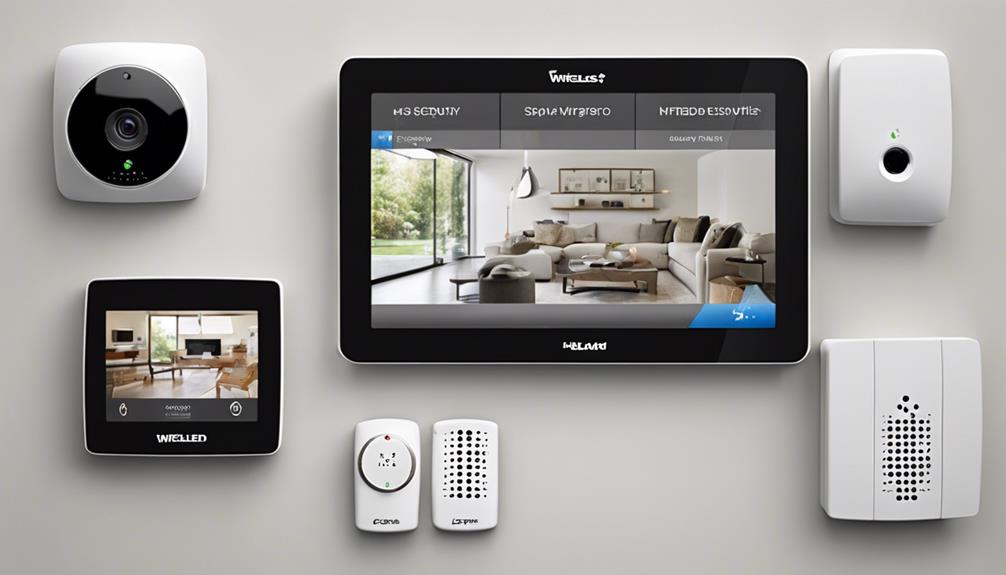When securing your home, consider that wired systems offer reliable, interference-free connections and high-resolution video without compression, ideal for consistent surveillance even during internet loss. Conversely, wireless systems face connectivity issues, relying on internet which can lead to monitoring loss and potential vulnerabilities. Wired systems are less susceptible to hacking due to physical access requirements, while wireless ones may face interception if security measures are weak. Costs differ, with wired saving on cloud storage fees. For a thorough view, other factors like installation ease, network security, and system scalability play significant roles in your decision-making process.
Key Takeaways
- Wired systems offer reliable, interference-free connections, while wireless systems may suffer from connectivity issues.
- Wired systems provide enhanced security with physical access requirements, while wireless systems are vulnerable to hacking.
- Wired systems store footage locally, avoiding cloud storage fees, unlike wireless systems with recurring costs.
- Wired systems often require professional installation, while wireless systems are DIY-friendly and easily movable.
- Consider property size, budget, technical expertise, scalability, regulations, and market trends when choosing between wired and wireless systems.
Connection Stability
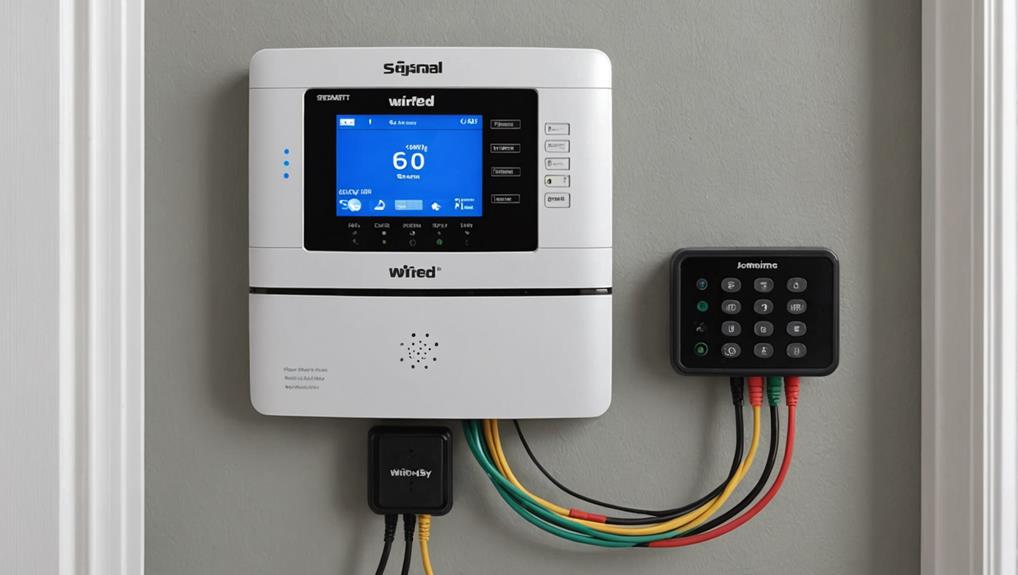
When it comes to connection stability in home security systems, wired systems offer a reliable solution that's unaffected by interference.
Wired system benefits include a consistent and secure connection, free from disruptions caused by household devices like microwaves. Unlike wireless security advantages, which may face connectivity challenges over long distances or through obstacles, wired systems provide a stable connection that minimizes the risk of signal loss, ensuring uninterrupted security monitoring.
Wired systems also tend to have lower maintenance needs, adding to their reliability. The pros and cons of wired vs. wireless systems highlight that environmental factors have minimal impact on wired systems, allowing them to operate effectively regardless of external conditions.
In contrast, wireless systems are more susceptible to interference, potentially compromising their reliability. Thus, if you prioritize a dependable and stable connection for your home security needs, a wired system may be the most suitable choice for ensuring continuous monitoring without the risk of connectivity disruptions.
Network Security
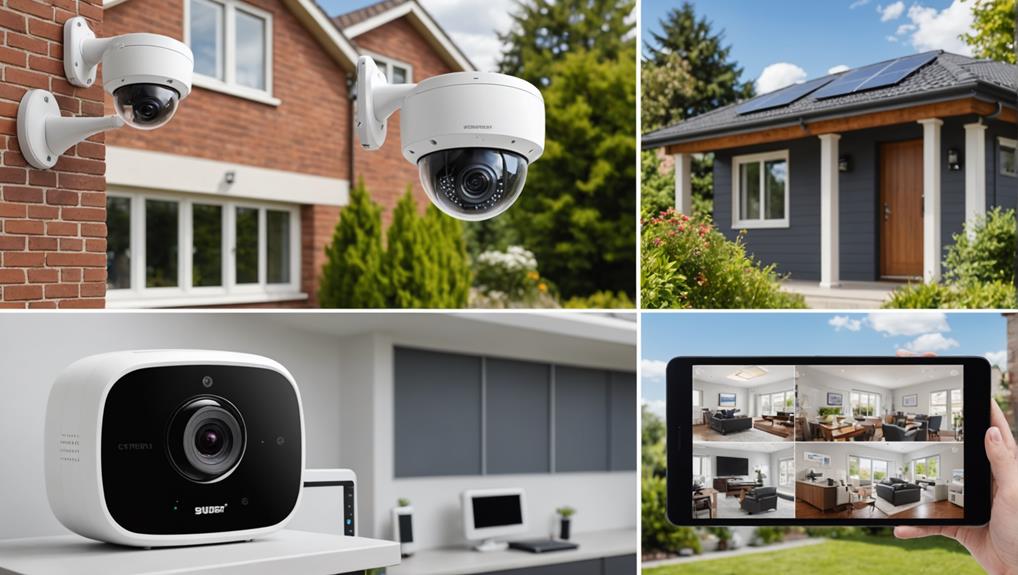
Taking into account the significance of safeguarding your home security system, network security plays a vital role in ensuring the protection of your data and privacy.
According to a comparative analysis of wireless and wired security systems, each has distinct security implications. When choosing between wireless and wired security systems, it's important to evaluate the network security implications carefully.
Here are some key points to reflect upon:
- Physical Access: Wired systems require physical access for hacking, enhancing network security.
- Vulnerabilities: Wireless systems are vulnerable to interception and unauthorized access if security measures aren't robust.
- Internet Dependence: Wireless systems' reliance on the internet exposes them to threats from compromised networks.
- Data Breach Risks: Wired systems operating independently reduce the risk of data breaches common in wireless setups.
- Local Storage: Wired systems with local storage minimize data loss during internet outages, enhancing reliability.
Costly Cloud Storage Options
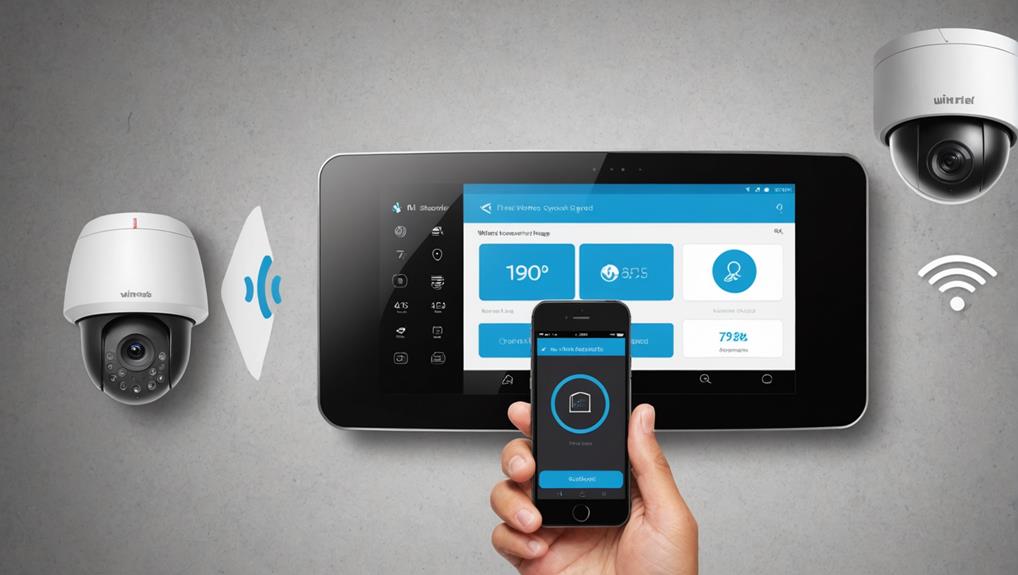
Opting for wireless home security cameras often entails costly monthly cloud storage subscriptions, greatly impacting your overall security budget.
In addition to cloud storage fees, some wireless systems may require more frequent maintenance compared to wired systems, which can further increase expenses.
For more details on selecting the right type of security system, refer to this guide.
In contrast, wired systems offer local storage solutions, bypassing the need for ongoing cloud fees and potentially saving you money in the long term.
Consider the financial implications of cloud storage options carefully to make an informed decision that aligns with your security needs and budget constraints.
Cloud Storage Cost
Amidst the array of considerations when selecting a home security system, the aspect of cloud storage cost emerges as an essential factor influencing the overall affordability and convenience of the system.
Here are some key points to evaluate regarding cloud storage costs:
- Wireless security cameras often require costly monthly cloud storage subscriptions.
- Wired systems typically store footage locally, eliminating the need for recurring cloud fees.
- Cloud storage expenses can lead to potential data loss during internet outages.
- Local storage in wired systems provides immediate access to recorded footage without external services.
- Over time, the absence of cloud storage fees in wired systems results in substantial savings compared to wireless options.
Evaluating the financial implications of cloud storage subscriptions can help you make an informed decision that aligns with your budget and security needs.
Storage Options Analysis
Exploring the storage options available for home security systems reveals a significant disparity in costs, particularly when it comes to cloud storage subscriptions.
Wireless security cameras often necessitate costly monthly cloud storage subscriptions, which can accumulate over time. In contrast, wired systems typically store footage locally, sidestepping recurring fees tied to cloud services.
Long-term expenses tend to favor wired systems due to the lack of ongoing cloud storage fees, making them more cost-effective in the extended duration. Additionally, wireless systems might face potential data loss during internet outages, especially if footage solely resides in the cloud.
On the other hand, local storage in wired systems allows for immediate access to recorded footage without relying on external networks or services.
Considering these factors, the cost implications of cloud storage options play an essential role in determining the most suitable home security system for your needs.
Data Security Considerations
Considering the significant expenses tied to cloud storage subscriptions in wireless home security systems, the focus shifts towards evaluating the data security implications associated with these costly options.
When contemplating data security in wireless systems with costly cloud storage, keep in mind:
- Monthly fees for cloud storage can accumulate over time, adding to the overall cost of the security system.
- Reliance on internet connectivity for accessing cloud-stored footage may pose risks during network outages.
- Wired systems offer local storage options without recurring fees, ensuring immediate access to footage without internet dependency.
- Wireless systems are susceptible to data breaches through cloud services, highlighting potential security vulnerabilities.
- Compression of video footage in cloud storage for wireless systems can compromise image quality, impacting the clarity and detail of recordings compared to wired systems' high-resolution capabilities.
Understanding these considerations is essential for making an informed decision regarding the data security aspects of wireless versus wired home security systems.
Dependence on Internet Connectivity
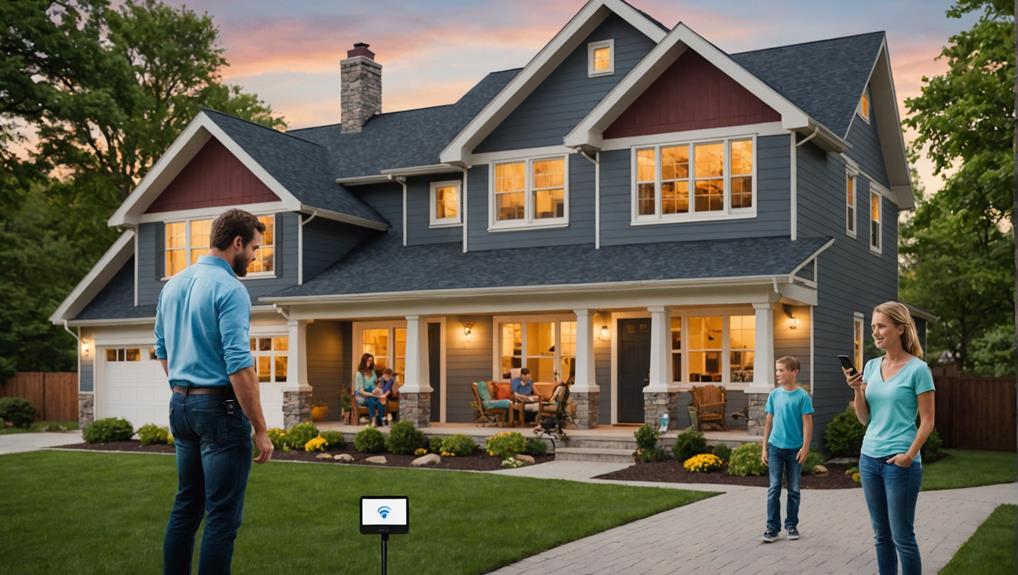
With wireless security systems relying on internet connectivity, disruptions in service can lead to loss of monitoring capabilities.
This reliance on the internet can also make wireless systems vulnerable to hacking attempts, as highlighted in various analyses.
In comparison, wired systems operate independently of internet access, ensuring continuous surveillance even during outages.
This disparity in connection stability is an essential factor to take into account when choosing between wireless and wired home security systems.
Internet Connectivity Impact
When it comes to the impact of internet connectivity on home security systems, the reliance on a stable online connection is an essential factor to bear in mind. Here are some key points to reflect upon:
- Wireless systems depend on internet connectivity; if the connection is lost, monitoring and alerts may cease, leaving your property vulnerable.
- Wired systems operate independently of the internet, ensuring continuous monitoring and recording regardless of external network status.
- Wireless systems may compromise video quality due to compressed cloud-stored footage, while wired systems maintain high-resolution transmissions.
- Dependence on the internet makes wireless systems more susceptible to cyber threats compared to wired systems, which require physical access for breaches.
- Overall, the reliability of a wired system enhances security effectiveness, guaranteeing uninterrupted operation even during internet outages or disruptions.
Understanding how internet connectivity impacts security systems can help you make an informed decision based on your specific needs and concerns.
Connection Stability Comparison
Given the critical role of internet connectivity in home security systems, the stability of the connection is a key aspect to compare between wired and wireless setups.
Wired systems offer a consistent and reliable connection unaffected by environmental factors or interference, ensuring continuous monitoring and prompt alerts. On the other hand, wireless systems are more vulnerable to disruptions from household devices like microwaves, leading to potential connectivity issues during periods of high interference.
In the event of internet loss, wired systems maintain operation independently, while wireless systems may cease recording and notifications. Wired connections also provide high-resolution video transmission without compression, enhancing security effectiveness compared to cloud-based wireless systems.
Additionally, wired setups rely less on external networks, reducing vulnerabilities associated with cloud storage and internet access. When prioritizing connection stability for seamless home security, the reliability of wired systems shines through with their steadfast performance.
Ease of Installation
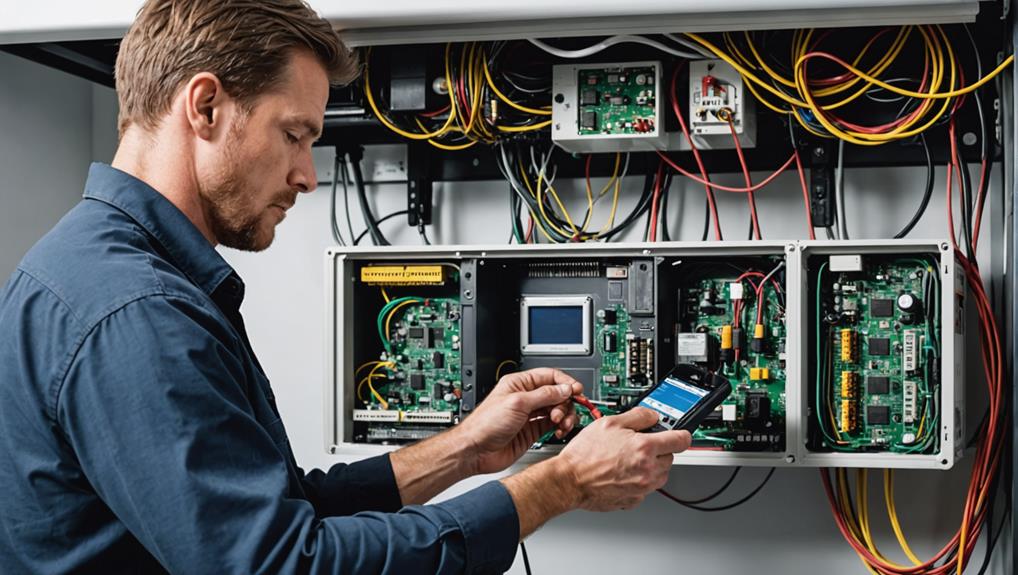
Installing a home security system can be a straightforward process, especially when evaluating the ease of installation offered by wireless systems compared to their wired counterparts.
If you're looking for a hassle-free setup, wireless systems may be the way to go. Here are some key points to take into account:
- Wireless systems are DIY-friendly, requiring minimal setup and no extensive wiring. They can often be installed in under an hour, making them a convenient option for those with busy schedules.
- Wired systems often need professional installation due to complex wiring, which can be time-consuming and costly. The comparison between DIY and professional installation is significant here, as professional setups may also include ongoing maintenance fees.
- Battery-operated wireless systems offer flexibility in placement without the need for nearby outlets.
- Power over Ethernet (PoE) can simplify wired system installation but may require technical expertise.
- Wireless systems are easily movable, making them perfect for renters or frequent movers.
When it comes to setting up your home security system with ease and convenience, wireless systems provide a user-friendly solution that can adapt to your needs effortlessly.
Overview of Security Systems
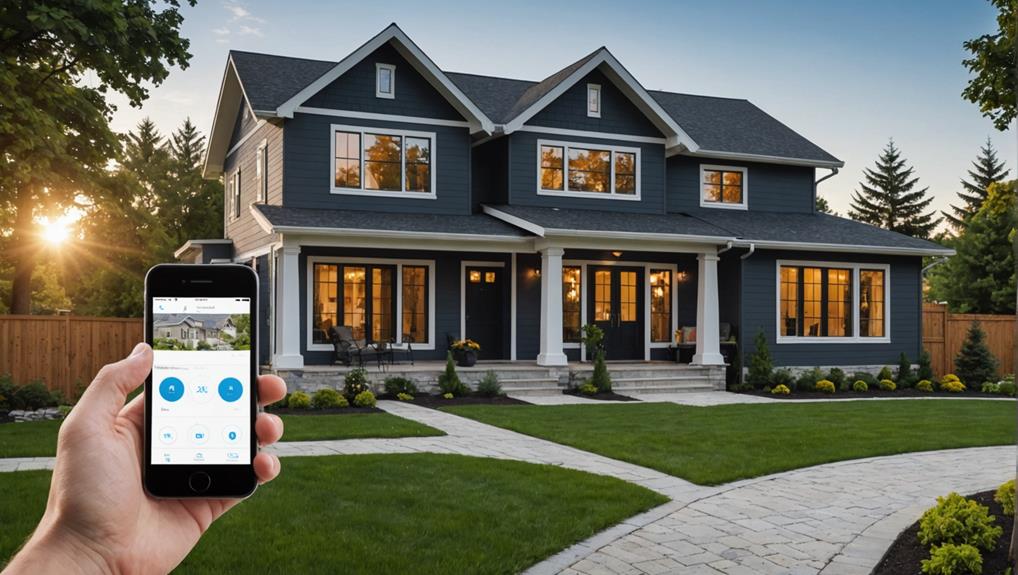
In a rapidly evolving landscape of security technology, an essential aspect to evaluate is the overview of security systems available for safeguarding your home or business.
Wired security systems rely on physical cables for sensor connections, offering stable links that are resistant to interference. However, installations can present challenges such as the need for drilling and cable management in complex layouts.
On the other hand, wireless security systems use radio frequencies, enabling simpler installations and adjustments without extensive wiring. Wired systems typically draw power from the electrical grid, while wireless systems commonly operate on batteries, requiring regular maintenance.
The market trend favors wireless technology, with an anticipated annual growth rate of 8%. Both wired and wireless setups depend on a central control panel for monitoring and alert communication, ensuring effective security management for residential and commercial properties.
As you consider the security needs of your property, understanding these fundamental differences can assist you in making an informed decision.
Considerations for Choosing a Security System
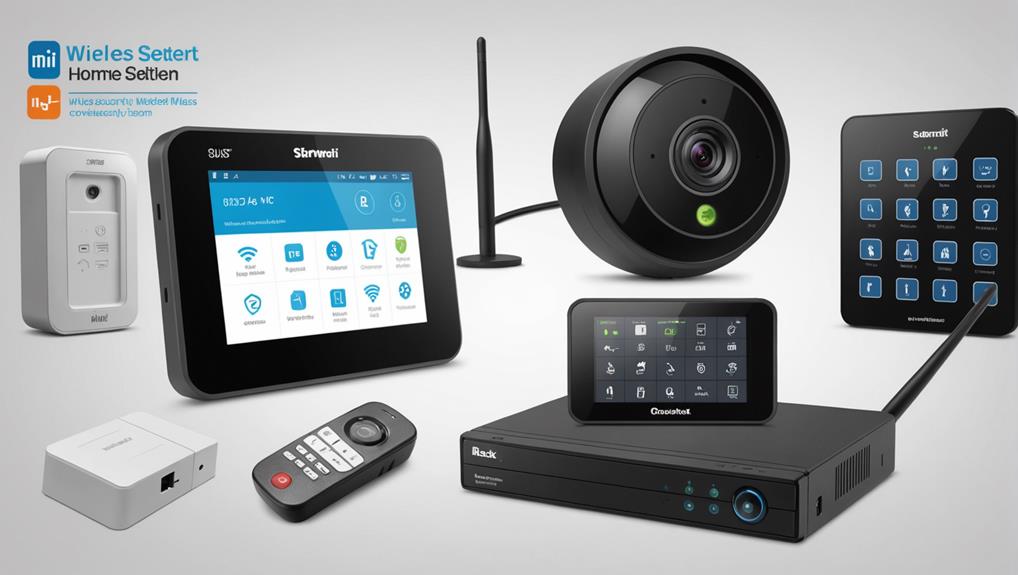
When selecting a security system for your property, it's essential to take into account various factors to guarantee the effectiveness and efficiency of your chosen solution. Consider the following:
– Assess the property size and layout to determine the best coverage needed for the chosen security system, as larger areas may benefit more from wired systems for their reliability.
Also, keep in mind that DIY vs. Professional installation options may affect your decision, especially when dealing with extensive properties.
- Evaluate budget constraints not only for the initial installation costs but also for ongoing maintenance, as wireless systems may incur additional expenses like battery replacements and cloud storage fees.
- Consider the level of technical expertise required for setup; wireless systems often allow for easier DIY installation, while wired systems typically necessitate professional installation due to cabling requirements.
- Analyze the potential for future upgrades and expansions, since wireless systems offer greater scalability with the ability to easily add or remove components as needed.
- Review local regulations and insurance requirements, as some policies may offer discounts for monitored systems, impacting the choice between wired and wireless options.
Frequently Asked Questions
Is It Better to Have a Wired or Wireless Security System?
For your security needs, consider the benefits of a wired system: stable connections for reliable monitoring and lower long-term maintenance.
However, wireless systems offer easier installation and flexibility.
Evaluate your priorities – reliability or convenience – to decide which system suits you best.
Both have unique advantages, so choose based on what matters most to you.
Your peace of mind is the priority; make the choice that aligns with your needs.
What Are the Disadvantages of a Wireless Alarm System?
When thinking about wireless alarm systems, you should consider a few drawbacks.
Signal interference from household gadgets like microwaves can disrupt communication. Wireless systems rely on batteries, so you'll have ongoing maintenance costs.
They're also more susceptible to hacking if security measures aren't strong. Internet outages might cause connectivity issues, leaving monitoring gaps.
Additionally, the range of wireless sensors could limit coverage, creating blind spots in larger properties.
What Are the Pros and Cons of a Wireless Security System?
When it comes to a wireless security system, the pros include easy installation without wiring hassles and flexibility in placement.
However, signal interference from household devices may affect performance.
Battery-operated, they work during power outages but need regular maintenance.
Keep in mind the convenience but also the potential for disruptions and extra costs.
It's a trade-off between ease of use and occasional maintenance needs with a wireless system.
Are Wired Security Systems Obsolete?
No, wired security systems aren't obsolete.
While wireless options are popular, wired systems offer reliability, stable connections, and immunity to signal interference. They provide high-quality video, continuous recording, and are less vulnerable to hacking.
Initial installation costs may be higher, but long-term maintenance expenses are lower.
Wired systems are still essential for larger properties needing extensive coverage and play important roles in specific security needs.
Conclusion
In summary, when deciding between a wireless and wired home security system, consider factors such as connection stability, network security, cloud storage options, dependence on internet connectivity, and ease of installation. Both systems have their pros and cons, so it's important to choose the one that best fits your needs and preferences. Ultimately, the goal is to guarantee the safety and security of your home and loved ones.

